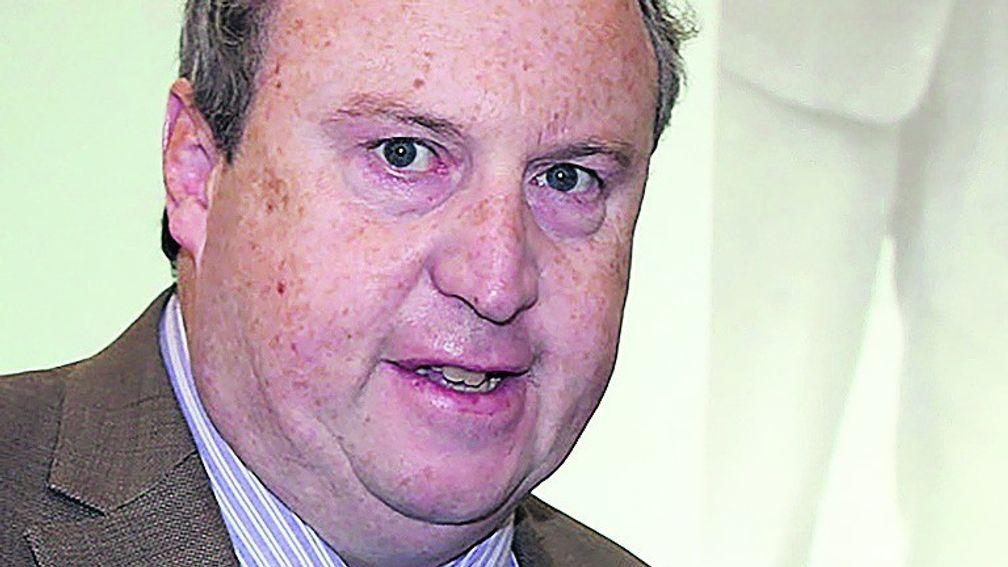Mullins: power in too few hands is killing Irish racing

Tony Mullins has rejected Brian Kavanagh’s claims that a concentrated emphasis on quality in the Irish jump racing programme is having a positive effect on the industry and suggested the domination of the major owners is having a catastrophic impact on the majority of trainers.
A Cheltenham Festival-winning trainer ten years ago, when Pedrobob won the Vincent O’Brien County Hurdle, Mullins has enjoyed many big race winners but admitted to the Racing Post on Tuesday he has been struggling to make training pay for the past six of seven years.
He has urged the governing bodies of Irish racing to wake up before it is too late. “I strenuously disagree with Brian Kavanagh’s comments in relation to the strength in depth of Irish racing," Mullins said in reference to remarks made by the HRI CEO in relation to the strategic ambition to create a high-quality programme.
"This is a beautiful short-term fix, but it's going to be catastrophic to this industry in the end.

In 2011-12 more than 9,500 horses ran across 805 point-to-point races but fewer than 5,500 ran in 613 races in 2015-16, constituting a massive 43 per cent plunge.
The number of licensed jump trainers has also been falling, with just 101 registered handlers in 2016, down from 120 in 2010.
Mullins is typical of the sort of skilled handler who now finds it increasingly difficult to make a living in an environment that has seen the strong get stronger as those in the middle and lower tiers struggle to maintain a viable business model.
Between 2000 and 2009, he averaged 127 jumps runners and 16 winners per season, saddling 22 jumps winners in 2005-2006. However, his string has fallen drastically since 2009, since when he has been averaging a winners-to-runners ratio per season of 6-68.
“I used to have ten people working here and now I have three. To be honest, I don’t really have the work for three people either,” he said.

“The major owners are not breaking any rules here, let’s get that straight, but the rules shouldn’t allow them to kill an industry. That’s my argument.
"If you wanted to compare this to anything, the most accurate comparison would be when the whole building trade brought down the country.
"That was great for the few years, just like this is, but what’s going to happen in five years if this is allowed to continue? I think it will have catastrophic implications on the trainers outside the top six in Ireland."
'An extreme struggle'
HRI has made efforts to allay such fears, including reducing the cost of entry for races worth €20,000 or less and extending place prize-money to fifth and sixth in races worth €40,000 or more.
However, such measures are redundant in incidences such as that at Naas recently, when each of the four runners in a €32,500 chase represented the champion owner, Michael O'Leary's Gigginstown firm.
An ownership department headed by Aidan McGarry has been set up to aid the recruitment and retention of owners in Ireland, and McGarry says the early indications have been positive.
He commented: “We're definitely seeing an upturn in horses in training, national hunt runners in a race and national hunt entries. The increases are there, albeit in the understanding there is an extreme struggle for an awful lot of trainers.
“Undoubtedly it's still very difficult for trainers, but in terms of the overall figures there are positive signs to be taken."
McGarry added: “HRI has also introduced the trainer marketing support scheme, which is a grant of up to €1,000 per trainer.
“Trainers can claim back any expenses up to that figure for any costs they might incur on open mornings, website designs or even social media courses.
"We want trainers to try to embrace things like this and get out there and promote their business. We're there to give them a guide and provide as much help as we can.”
Published on inNews
Last updated
- Join Racing Post Members' Club for the very best in racing journalism - including Patrick Mullins' unmissable trip to see Gordon Elliott
- Join the same team as Ryan Moore, Harry Cobden and other top jockeys with 50% off Racing Post Members' Club
- Racing Post Members' Club: 50% off your first three months
- 'It’s really exciting we can connect Wentworth's story to Stubbs' - last chance to catch master painter's homecoming
- The jumps season is getting into full swing - and now is the perfect time to join Racing Post Members' Club with 50% off
- Join Racing Post Members' Club for the very best in racing journalism - including Patrick Mullins' unmissable trip to see Gordon Elliott
- Join the same team as Ryan Moore, Harry Cobden and other top jockeys with 50% off Racing Post Members' Club
- Racing Post Members' Club: 50% off your first three months
- 'It’s really exciting we can connect Wentworth's story to Stubbs' - last chance to catch master painter's homecoming
- The jumps season is getting into full swing - and now is the perfect time to join Racing Post Members' Club with 50% off